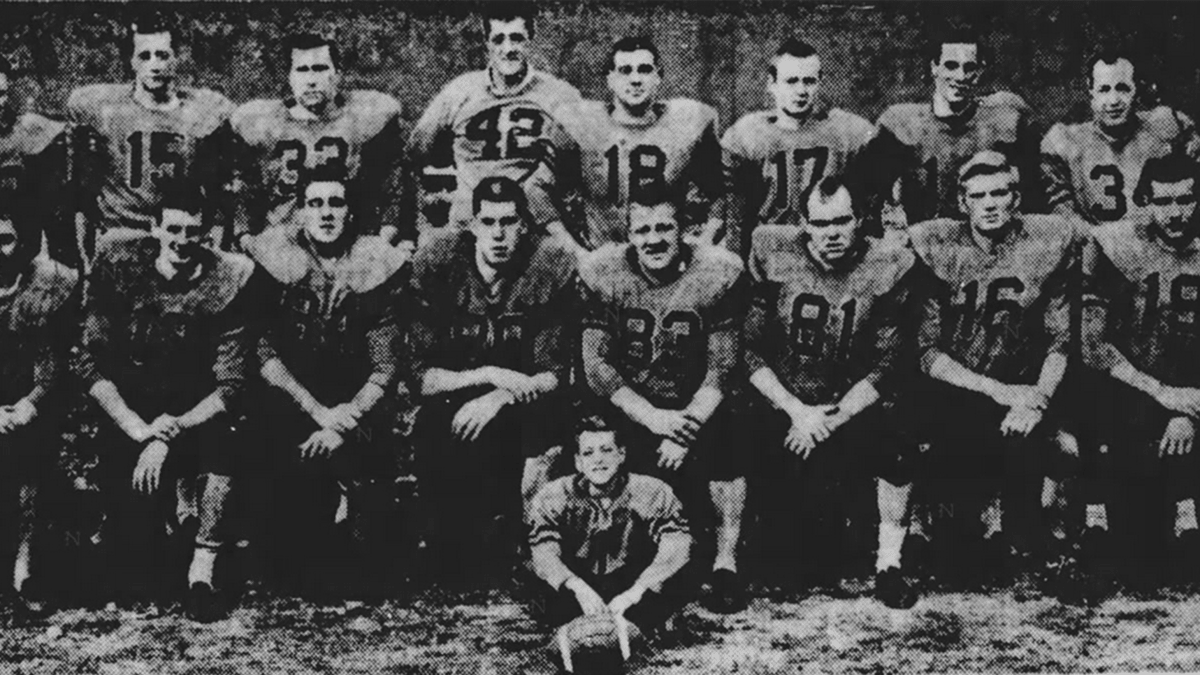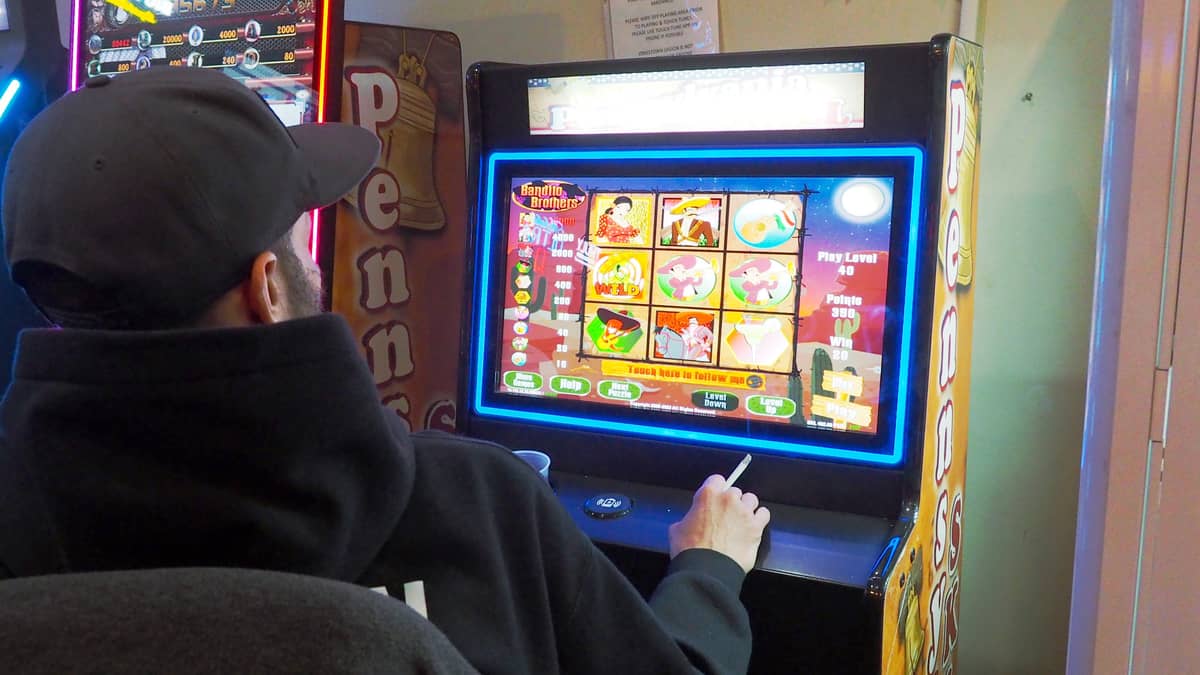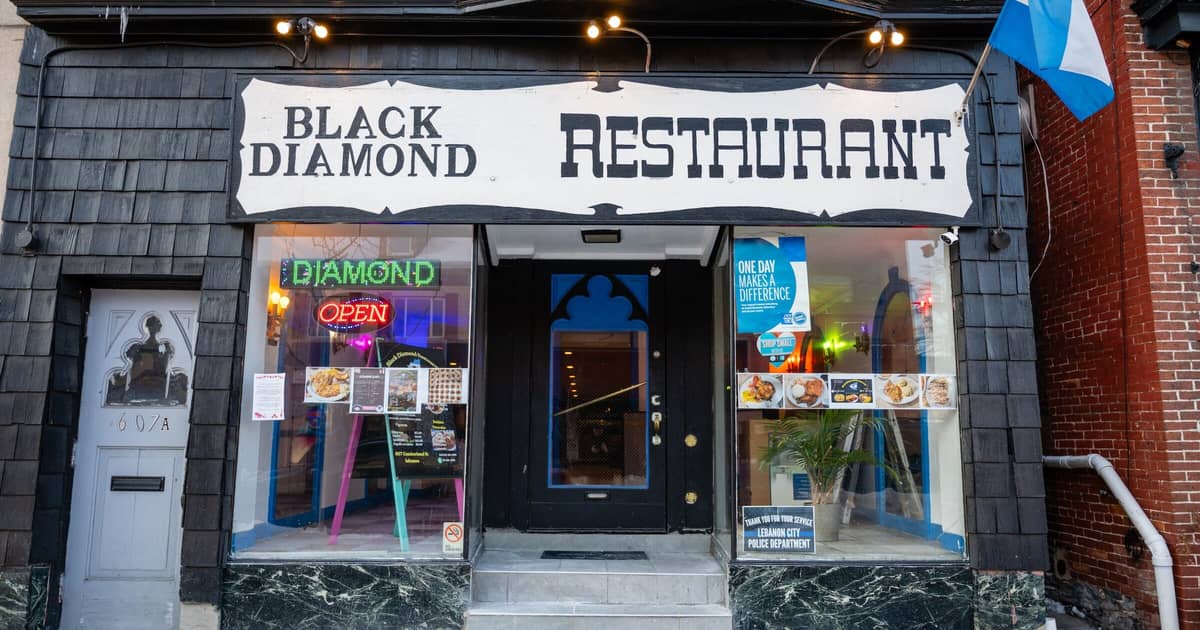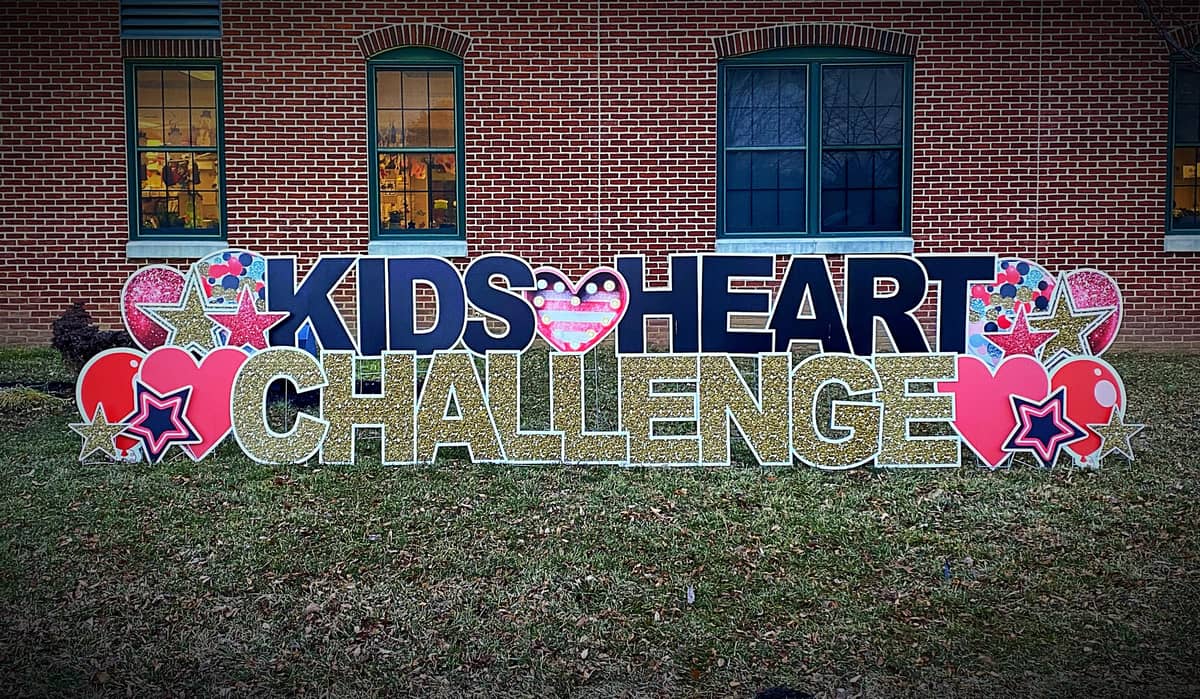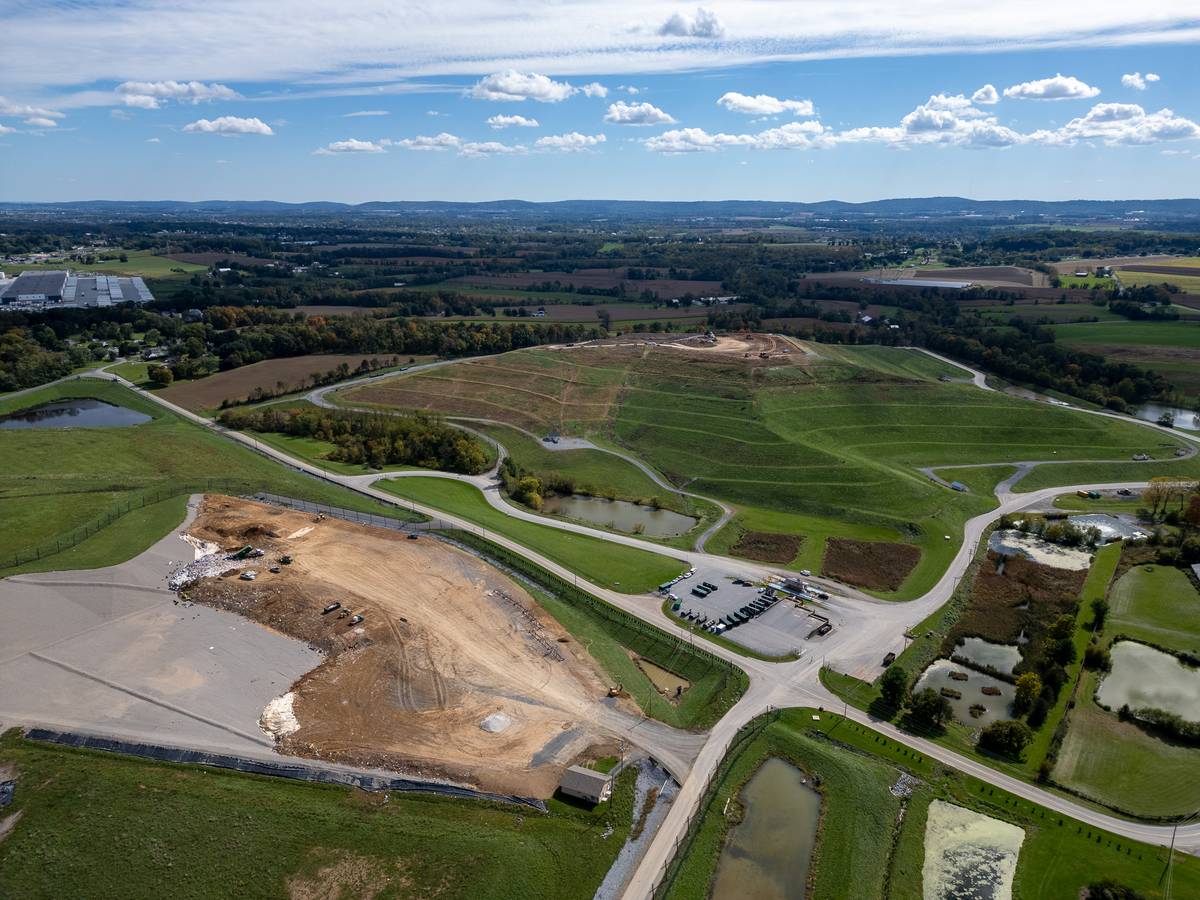In the middle of the 20th century, several groups of young football players organized themselves into independent, “semi-pro” football teams — and even staged a home-grown “Bologna Bowl.”
This was the era of sandlot matches and teams composed of neighbors and folks down the street. It was casual, friendly, fun, and, perhaps most importantly, it was a way to stave off the boredom.
As the Boro Rams’ manager, Gus Deraco, put it in a 1986 interview with the Lebanon Daily News, “all we would do after we’d finish school was come down and hang around the corner at 6th and Maple and do nothing.” (More on Deraco in a bit.)
The first ever independent football game was staged in the city on Sunday, October 14, 1923. The Lebanon “Battery H” went up against a Palmyra team, beating them 3-0. The match took place on the Lebanon Steel Foundry gridiron with around 800 spectators in attendance, according to the Lebanon Daily News, and was said to be “one of the best” seen in amateur ranks by the old-timers in the audience.

It was a worthy kick-off to Lebanon’s independent football days, but the real action would begin two decades later, during World War II and the years following it.
The Lebanon Boro Rams and Gus Deraco

In the 1940s, independent football entered its heyday, with multiple teams from Lebanon and surrounding towns meeting up for games regularly. These included teams like the 10th Street Tigers, Federal Street Ramblers, the 12th Street Monsters, the Hazel Dikers, YMCA Juniors, and more. Outside of the city smaller towns like Minersvillage, Campbelltown, Rexmont, Annville, and numerous others also formed their own teams.
An independent team often consisted of graduates of high school or college, or even those still in high school. A typical spot for games in the 1940s was at 5th and Hill Streets, and kickoffs usually began at 2:30 p.m. Teams were often made of up neighbors along a street or block; the 10th Street Tigers, for example, were an informal “neighborhood gang” of friends from 10th, 11th, Elizabeth, and Partridge Streets. Though these teams were often formed based on simple proximity, it wasn’t unusual for players to join different teams throughout the seasons.
According to Deraco via the Lebanon Daily News, independent football involved some 2,500 players over the years and up to 20 teams at its peak. By the late 1940s, though, only two teams in Lebanon remained prominent: the 5th Ward Athletic Club Golden Gophers and the Lebanon Boro Rams. Both were semi-professional and sometimes took on regional opponents like the Allentown Bulldogs.
The Lebanon Boro Rams formed sometime around 1940 and went undefeated for the year’s season at 16-0 followed by another undefeated season with 15 wins in 1941. When America entered World War II in 1941, players, including the Boro Rams’ manager, went off to the conflict. Fortunately, all returned safely from the war and got back to the game, going 10-3-3 in the 1946 season.
The manager of the Boro Rams was Augustus “Gus” Deraco, a World War II veteran, proprietor of the Hoagy Sandwich Shop on South 10th Street, and something of a legendary figure in Lebanon sports history. Early on, Deraco also played quarterback for the team.

Deraco managed or coached several other teams over the years, including the Cornwall Athletic Club, and the “midget” youth football team of the Friendship Fire Company of South Lebanon in the late 1950s. Deraco was well-known in Lebanon for both his prominence in local sports and his food shops, and Gus Deraco’s Italian Sandwiches still operates on Cumberland Street today.
“Gus was a tremendous promoter. Besides the Rams he had an amateur men’s basketball league and was the president of the Lebanon Twilight Adult Baseball League,” wrote Karl “Skip” Wolf, a local sports historian, in an email exchange with LebTown.
“Gus used to drive an old van that had big placards attached with the yearly team roster of names on its sides,” Wolf added.
It was a busy time for local games, especially for top teams. Deraco recalled having to “flip a coin” to see who the Boro Rams would play each Sunday; “they all wanted to play us.”
By 1947, Deraco had decided to kick the team up a notch. With new equipment and the hiring of Coach “Red” Dunn, the team was now a semi-professional force to be reckoned with. In 1949, the team would play its last game as the Boro Rams for a couple of years, before being reformed officially under their regular name in 1952 with coach Grant “Scoop” Feeser. In this period, the team played as part of the Cornwall Athletic Club, organized by Matthew “Tip” Karinch. (It seems that nearly everyone involved in local sports had a nickname back in the day.)
Read More: LebTowns: North Cornwall & Karinchville

In Deraco’s opinion, given to LDN sportwriter Ed Gruver in 1986, the 1950 team was the most talented of all, though teams of other years were hardly lacking for skill either.
The 5th Ward is perhaps the lesser known of the two main independent teams, although the 5th Ward Athletic Club is still in operation. They also began playing semi-professionally around the same time of the Boro Rams and began travel games. The two teams developed a rivalry in the late 1940s.
The Bologna Bowl

One of the hallmarks of the local football scene was the Bologna Bowl, the name for several local football events dating back to as early as 1939, when the “Lebanon O. R.” defeated the Lebanon Blue Jackets 30-6 at Pleasant Hill. However, a separate Bologna Bowl was the talk of the town in late 1946, this one organized by Deraco. Sources differ on what the first official Deraco-organized Bologna Bowl was, but the first to appear in newspapers was held on New Year’s Day, 1947, at 5th and Hill Streets, with a kickoff of 2:30 p.m.
The Boro Rams edged out a victory against an “Ex-High” team 7-6, with the game-winning bonus point coming from fullback Roy Blantz. Over the next few years, the Bologna Bowl became an annual event. The 1948 match saw the Boro Rams going up against the 5th Ward; the Rams won 7-6 in the Lebanon High School stadium in front of over a thousand spectators.

The Bologna Bowl name was adopted in the 1950s by the college football teams in the area and sponsored by the Lebanon Kiwanis Club. Games were still played at the Lebanon High stadium.
Read More: When John Heisman coached a Penn football team in Mt. Gretna
At least seven players are reported to have made it to the pro world in some capacity; the Rams’ John Huzvar went on to play with the Philadelphia Eagles and the Baltimore Colts; Bob Sponaugle played for a Campbelltown team before reaching the New York Titans; Joe Pierre went on to the Steelers; Wayne Liddick the Dolphins; and Bob Soster the Eagles. Jerry Seaman became an official in the NFL while Paul Albert became a USFL scout.
The decline of independent football

In the 1950s, the growing popularity of television began to sap the energy for local football. Deraco stated in 1986 that “the crowds weren’t coming out[…] There was so much football on TV.”
After a few rough years, the Rams found themselves merged with the 5th Ward, their old rivals, in another semi-professional stint organized by Deraco that would last until 1961. After a two-year gap, the Boro Rams reformed a final time in 1963 for five years. At this point, Deraco was unable to find any stadium in Lebanon to play on, so the team resorted to using a field in Ephrata.
The Boro Rams stopped playing in 1968, but not before winning two championships in the Mason-Dixon Conference. Their season in 1967 came out to 8-1-1 (scores here) and in 1968, they managed a 6-3-1. They won a title game 6-0 against the Jersey Hurricanes in their last year, with Bruce Kilmoyer landing the winning touchdown.
And that was it. In Deraco’s words, independent football died after 1968.
In the 1980s and early 1990s, interest in the days of independent football resurged thanks to the efforts of Deraco and George “Ozzie” Miller among others. Reunions of old sandlot teammates were common, with the Boro Rams’ 50th anniversary celebration arriving in 1990. Deraco was recognized in 1983 with the John B. Sollenberger Award at the Central Pennsylvania Sports Hall of Fame. In 1996, the Boro Rams were inducted into the Lebanon County Sports Hall of Fame, which Deraco had helped organize years earlier.
Though independent football’s heyday in the 20th century is well behind us, there’s nothing stopping something like it happening again in the future. After all, even Gus Deraco, prior to his 2006 passing, continued to speculate on the ways that independent local football could be revived. All it really takes is a football and people who want to play.
Questions about this story? Suggestions for a future LebTown article? Reach our newsroom using this contact form and we’ll do our best to get back to you.

Keep local news strong.
Cancel anytime.
Monthly Subscription
🌟 Annual Subscription
- Still no paywall!
- Fewer ads
- Exclusive events and emails
- All monthly benefits
- Most popular option
- Make a bigger impact
Already a member? Log in here to hide these messages
An informed community is a stronger community. LebTown covers the local government meetings, breaking news, and community stories that shape Lebanon County’s future. Help us expand our coverage by becoming a monthly or annual member, or support our work with a one-time contribution. Cancel anytime.

